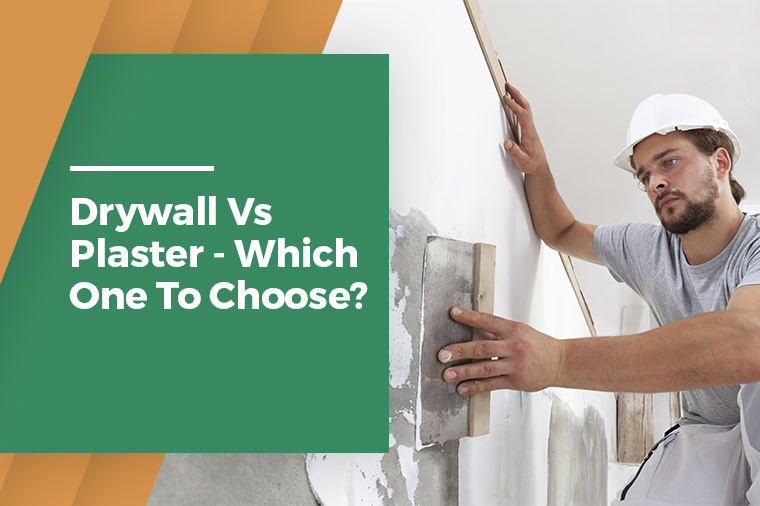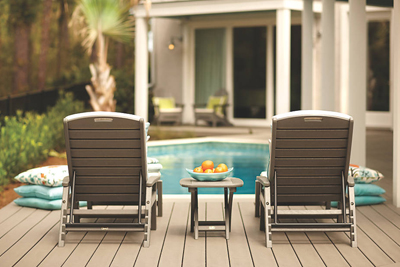Drywall Vs Plaster - Which one to choose?

To All Our Valued Customers, Over the past few years, the Covid 19 Pandemic has forced us to adapt and change the way we do things on a day-to-day basis. Florida Lumber is no exception. To make sure that we remain strong and competitive in the market for the years to come, Florida Lumber has had to adjust and change our vision for the future. In the last 2 years, we have stopped selling Sheetrock and drywall products, roofing felt and roofing materials, and have even closed on Saturdays.
Over the last few months, we have been transitioning our way out of the door supply business so on August 31, 2022, our door shop will stop assembling doors. We will continue liquidating our doors from inventory until we are out of material.
Some customers have asked if we are closing or even moving locations. To set the story straight, we are not closing or selling the business and we are not moving. These changes are all part of our new vision and path to continue serving South Florida and increasing our footprint in the construction supply industry.
Our focus is going to be on Lumber, Construction Materials, Rebar Fabrication and Rebar Accessories. As we have liquidated some of the items that we don’t sell anymore we have created more space to buy a larger volume of our core items and pass on the savings to our customers.
In the next year you will start seeing changes that will help improve our ability to serve you, our customers. We appreciate your business and your patience as Florida Lumber’s new vision becomes reality.
A Todos Nuestros Valiosos Clientes En los ultimos anos, la pandemia de el Virus (Covid 19) nos ha forzado a adaptarnos y cambiar la forma de hacer cosas en el dia a dia. Florida Lumber no ha sido una excepcion.
Para asegurarnos de mantenernos fuertes y competitivos en el mercado en los anos venideros, Florida Lumber ha tenido que ajustar y cambiar nuestra vision para el futuro. En los dos ultimos anos hemos dejado de vender los productos de yeso (sheetrock), paneles de yeso (drywall), tela asfaltica (roofing felt), materiales de techo y cerramos los Sabados. En los ultimos meses, hemos estado en transicion para salir del negocio de suministro de puertas, en Agosto 31, del 2022 nuestra tienda de puertas dejara de construir y/o cortar puertas. Vamos a continuar liquidando nuestro inventario de puertas haste que terminemos todo el material. Algunos de nuestros clientes han preguntado si estamos cerrando o si nos estamos moviendo a otra localidad. La verdad es que no estamos cerrando, no estamos vendiendo y no estamos cambiando de localidad. Estos cambios son todos parte de nuestra nueva vision y camino a continuar sirviendo al estado sur de la Florida y incrementar nuestras huellas en la industria de suministros de construccion.
paneles de yeso (drywall), tela asfaltica (roofing felt), materiales de techo y cerramos los Sabados.
En los ultimos meses, hemos estado en transicion para salir del negocio de suministro de puertas, en Agosto 31, del 2022 nuestra tienda de puertas dejara de construir y/o cortar puertas.
Vamos a continuar liquidando nuestro inventario de puertas haste que terminemos todo el material. Algunos de nuestros clientes han preguntado si estamos cerrando o si nos estamos moviendo a otra localidad.
La verdad es que no estamos cerrando, no estamos vendiendo y no estamos cambiando de localidad. Estos cambios son todos parte de nuestra nueva vision y camino a continuar sirviendo al estado sur de la Florida y incrementar nuestras huellas en la industria de suministros de construcción.
2431 N.W. 20TH ST.
MIAMI, FL 33142
PHONE: (305) 635-6412
Sales Fax: (305) 633-4054
Accounting Fax: (305) 635-3723
Email: sales@tloridalumber.com

Drywall and plaster are both widely used wall materials. Although they are available in a variety of thicknesses and grades, there are distinct differences between these two materials that may make one more suitable for a particular application than the other. This guide will outline the numerous benefits and drawbacks of drywall and plaster, allowing you to determine which material may be ideal for your next home improvement project.
Plaster is a substance composed of limestone, clay, and sand. It is essentially concrete that has been mixed with water to create a putty that is more workable. Plastering is the process of applying this material to walls, ceilings, and other surfaces for use as a finish. Drywall, however, is composed of gypsum, also known as Sheetrock. This material consists of gypsum powder and cellulose paper.
8 Differences between Drywall Vs Plaster
1. Cost
Plaster is much more expensive than gypsum drywall in terms of price because it requires significantly more raw materials than gypsum drywall. When it comes to cost, plaster is usually around three or four times the price of the drywall.
2. Durability
Plaster is considered to be more durable than drywall. It's important to note that the thickness of the plaster will determine the amount of durability it offers. The thicker it is, the more durable it becomes. Drywall, on the other hand, is very easy to break with a good blow from a hammer or other heavy object.
3. DIY Installation
Drywall is a simple material to install, which makes it the perfect choice for DIYers. Plaster is a little more difficult to install than drywall, but can be done by anyone with some experience. Plaster on the other hand tends to be difficult to install because it requires a lot more prep work and provides no structural support until it has cured. The plaster has to be able to dry before you can begin working on your next step.
4. Soundproofing
Drywall is sometimes used in areas where soundproofing is important because the paper component absorbs some of the noise and vibration that would otherwise penetrate the wall. Drywall does not offer significant soundproofing properties while plaster offers significant soundproofing properties. So which one do you need if your main concern is noise reduction? If you're building a home in an area far away from neighbors and want a maximum level of insulation then you should use plaster.
Additional Read
THE BEST CONSTRUCTION MATERIALS - SUPPLIED BY FLORIDA LUMBER IN MIAMI
5. Painting
Plaster can be painted either before or after it's dry. Depending on the type of plaster used, it can take up to a few weeks to dry, so you want to make sure that you apply a coat of primer before you prime and paint so that the paint will adhere properly. You should also use good quality paint with plaster because thinner paints tend to sink into the material.
6. Insulation
Plaster offers moderate insulation qualities. Drywall, on the other hand, is not a good insulator at all. In fact, it's considered one of the least effective insulators compared to other popular materials like fiberglass and rigid foam. Drywall on the other hand is much more insulating than plaster because it has a finished material on one side and an open cell core on the other.
7. Repairs
Since plaster does not have a smooth coating on its surface it's very difficult to repair mistakes or patches that aren't completely covered by the plaster veneer. This is not the case with drywall because it's very easy to repair and touch up when there are any mistakes. When the drywall is used, a piece of new drywall is mounted over the damaged portion. This can be done quickly while plastering is a much more labor-intensive process that requires the skilled craftsmanship of a professional plasterer to achieve perfectly.
8. Look and Finish
Plaster tends to have a smoother finish than drywall, which is needed for a nice smooth painted look. Drywall, on the other hand, can be textured and painted to resemble many different finishes, including stone and wood.
Plaster is a great material that offers many excellent properties. However, drywall is more durable and offers better noise insulation than plaster. If you're looking for something with a little more strength to it than drywall, then plaster might be the right choice for you. The two materials are fairly similar when it comes to appearance, but plaster does a much better job at replicating textures and finishes that look like real stone or wood.
If your primary concern is durability and structural integrity then you should use drywall instead of plaster because it's very durable. Plaster also has the option to be finished with an undercoat or top coat. This can be done with thin paint or even a gel coat. Drywall is not available in painted finishes so it's not possible to have a smooth finish on this material.
When you're deciding which plaster to use for your next project you have some fairly important factors such as cost, durability, and the amount of preparation time required. Drywall is much more economical than plaster because it doesn't require any special materials during production and the materials are generally available at a much lower price point. Drywall can also be put up quickly using simple hand tools and there's no need for any prep work prior to installation. Since drywall doesn't include any material that needs to cure, it can also be installed like wallpaper without special equipment or specialized knowledge.
Conclusion
Drywall is the more affordable and widely used type of wall material when compared to plaster. It's easy to install, has great sound insulation qualities, and comes in a number of different thicknesses and grades from which you can choose. Plaster on the other hand tends to be more expensive because it requires considerably more material for its creation. It also requires more prep work when installing so it might take longer than drywall to accomplish your project goals.
For more information visit Florida Lumber by clicking here.

